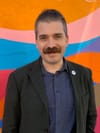Return to Little Pakistan: Mohammad Razvi Holds It Together
During COVID-19, as after 9/11, the son of a bodega owner navigated the city’s power structure on behalf of his frightened neighbors. Part 3 in a series
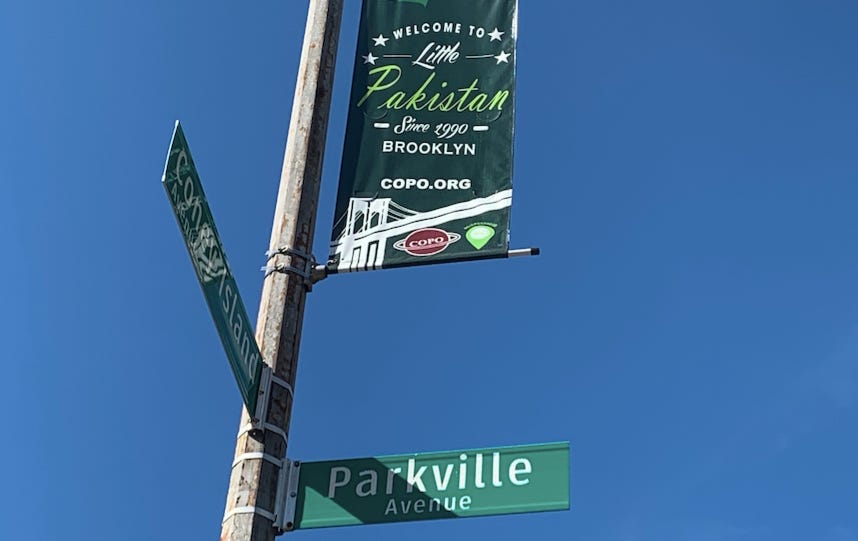
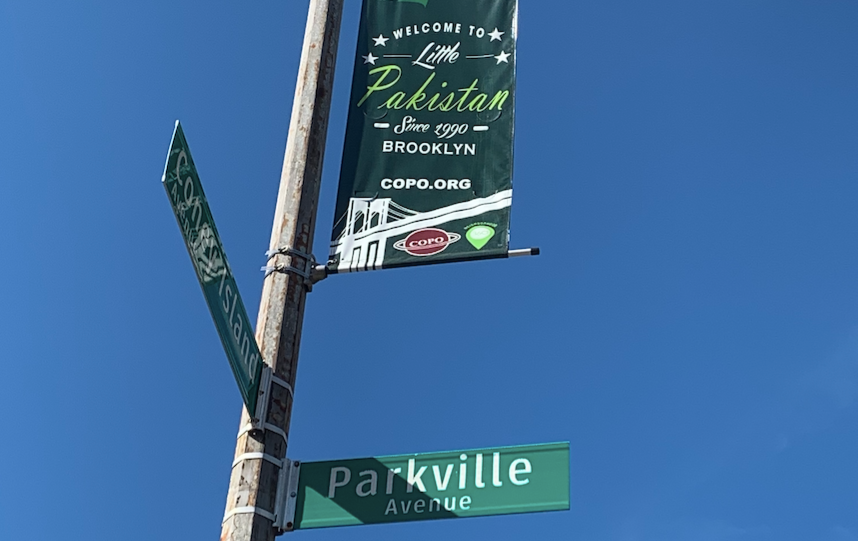
Edited by Sam Thielman
THERE’S A DEPRESSINGLY UNUSED kids’ plastic play area taking up space behind Mohammad Razvi’s hyperactive offices on Coney Island Avenue. At this moment, it’s an aspirational statement about one day returning to normal. The climbing structure and slide have given way to a cavernous staging ground for a food assistance program, serving the many people in need during the coronavirus pandemic.
Shoulder-high piles of canned goods and other nonperishables sit palletized and waiting for a forklift. Speaking as someone who used to wrap and palletize dozens of tons of leftovers from the Food Expo at the Javits Center, I can tell you that this is an obnoxious, laborious task. Lining the wall, facing the pallets, is a row of refrigerators for the perishables. Outside, on the east side of Coney Island Avenue between Avenue H and the small stretch of Glenwood before the Q train bisects it, stands a community-bodega fridge, its contents free to those who need them. Razvi, his Council of Peoples Organization (COPO), and their volunteers are the reason it is there.
Mohammad Razvi is 50 years old. After running “five different businesses, making money, doing great,” selling sweets, or books, or groceries, “I was supposed to retire at age 35,” he remembers. Instead, after 9/11, Razvi took a leading role mediating between his terrified Little Pakistan neighbors and a power structure that was closing in on them. He’s remained in this role ever since.
Twenty years after 9/11, the atmosphere here during COVID-19 has been one of malign class-based neglect, rather than active predation. But disinterest has led to outcomes just as awful. The working class of New York City suffers while the wealthy expect their packages and meals to be delivered on time, their clothes cleaned to antiseptic standards, and priority space in the hospitals. The expiration of the state’s evictions moratorium hangs like a sword of Damocles over 750,000 households.
Now as then, Razvi stepped into the breach created by government officials. He rattles off the figures: Before COVID, COPO was assisting 60 families weekly with food aid. During the pandemic, it exploded to 15,000. It’s not only Pakistani-Americans who Razvi helps through his food pantry – he’s heard Spanish speakers, Chinese speakers, Creole speakers – and not only with food assistance. “People come through my office for [help with] food stamps, for Medicaid, medical coverage, to senior services, to attorneys, food pantries, domestic violence, you name it,” Razvi says.
Those were all things Razvi helped Little Pakistan deal with during the terrifying years after 9/11. Starting then, and ever since, he made himself a representative to the FBI, to immigration officials, to prosecutors and to the NYPD’s 70th Precinct. Others in the community chose a more confrontational approach to law enforcement. Razvi saw engagement as the way out of persecution. He is an American, his children are American, and he wanted law enforcement to treat them as Americans.
“I was always rallying, but then I realized I need to sit down at the table, I need to let them know,” he says. A large American flag hangs from the tent above the staging area. Another takes up much of the wall behind his desk. Still, for many years after 9/11, as Razvi interacted with those intimidating law enforcement, immigration and prosecutorial systems, he went by Moe on his business card.
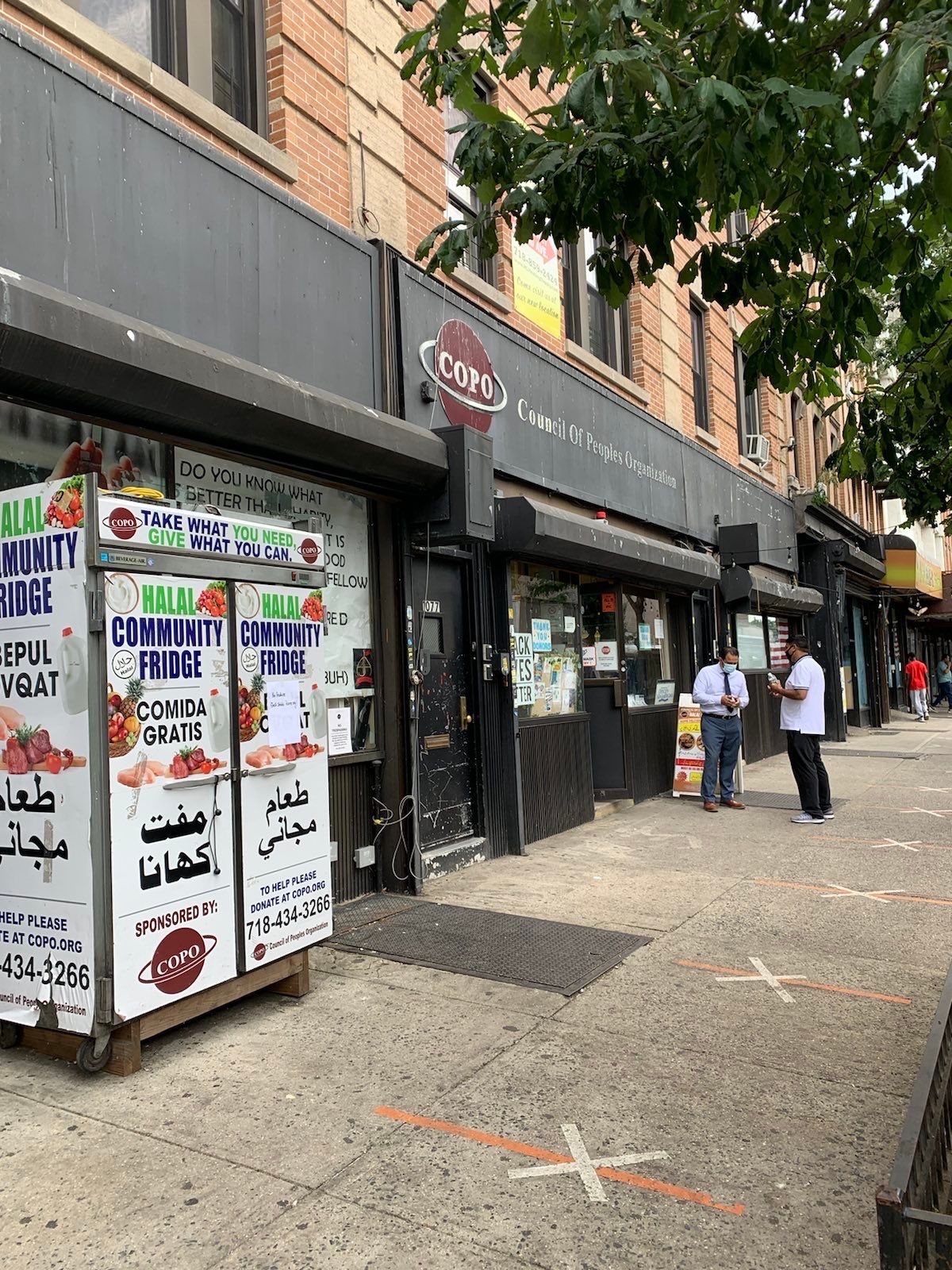
HERE’S WHERE I, the person crafting this story, have to step in.
If you are not from a community experiencing persecution – by agents of the state with the power to cage, deport, and kill you; by violent vigilantes; and by broader social messages and justifications that make you and those you love forever suspect in the eyes of the ruling classes – then keep your opinion of the right way for that community to resist to yourself. Remember what Bobby Khan said about Little Pakistan receiving no solidarity from its non-Muslim neighbors? If that applies to you, then, while you have the right to your perspective, you should keep your non-relationship to this community in mind before you express it.
This is an argument to be had within targeted communities. I am not writing this series to come in from the outside and presume to adjudicate it. That is 100 percent not my place. I am writing this series to bear witness. And that means bearing thorough witness.
ACCORDING TO A contemporaneous account in the Washington Post, an FBI special agent named Mary Jo Lyons stepped into a Little Pakistan mosque in 2003 and informed everyone, using polite euphemism, that they were to comply. “We are in a war on terror,” she said, “and the only way to overcome the fear is to work hand in hand with us.”
That was the civilized version of the message law enforcement sent to Little Pakistan. The people there knew what Lyons kept rhetorically holstered when she pled for cooperation. Mohammad Razvi was acutely aware of the uncivilized version. Barely 30 at the time, he had already been asked by many of his neighbors to intercede between them and the police who slipped cards under doors. He describes it as an accident that became a responsibility.
On 9/11, Razvi was working at his fabric store, Punjab Fabrics, near his father’s bodega, Punjab Grocery. “The ashes from the buildings came to these doorsteps,” he recalls. Some of his neighbors, “Irish and Italian paisans,” asked him how his people could have done this. “I told them, ‘these are not my people,’” he said. “Be that as it may, that’s how we were viewed. There were gunshots fired in the neighborhood. There were, including in my store, there were bullet holes. I think they were pellets, BB guns maybe. But still, the windows were shattered.”
Like many bodega owners, Razvi’s father was widely known to be a good man. “He was the pioneer who started the first ethnic grocery store for this community. It was just my dad’s grocery store and the mosque,” he says. “My dad was the one people looked at as, ‘Oh, he’s made the American dream. He’s got a business. How do I get my child into [this-or-that] school?’ My dad would help them. Somebody who didn’t have money to pay for food, my dad was like, ‘Don’t worry, when you get a paycheck, you can pay me.’”
After 9/11, they would come to the younger Razvi for help because their son or their brother had been arrested and taken who-knew-where.
Razvi knew one man who was stabbed in a post-9/11 hate crime and needed 40 stitches; the man told hospital workers that he did it to himself to avoid deportation. Razvi’s barber fled north rather than register with NSEERS. Years later they ran into each other when Razvi traveled to Toronto. “Yeah man,” Razvi remembers him saying, “I’m living the American dream in Canada.”
The wall behind Razvi’s desk in the office he shares with COPO staff is concealed by a giant American flag. The wall next to it has a printed-out Google Map of the neighborhood and its surrounding areas, which is used to chart a spike in local hate crimes after Donald Trump’s election.
“I had to go to classes, everything, to [help people] follow the right rules” set by city, federal and immigration bureaucracies and their operations, Razvi remembered. “I have an immigration attorney on staff for guidance – which is what we needed for our communities.” Razvi went through the NYPD Citizens Academy and the FBI Citizens Academy programs for community leaders, “to understand the system, how the system works and who to contact.” He told them the story of the man who wouldn’t report his own stabbing. If people gripped by fear of law enforcement saw something, to borrow the NYPD’s ubiquitous slogan, they were definitely not going to say something.
Razvi’s facility with the system emerged from his proximity to it, and it allowed him to locate people who had been taken by the FBI, the NYPD, or immigration. “Then I started making only one phone call,” Razvi said, “and if a federal agent had them, they’d let me know.”
Terror continued to course through the community, but Razvi felt he was starting to be heard. In 2003, he worked with the city’s Commission on Human Rights – along with Bobby Khan’s Coney Island Avenue Project – to produce a report detailing post-9/11 violence, housing and job discrimination, and harassment experienced by New York’s Muslim communities. He held a “COPO Youth Career Day” around 2011 with “the FBI, NYPD, Homeland Security, Secret Service, all the agencies, which actually gave a chance to the youth, their families, to get to know the agencies.” Razvi began receiving commendations from Ray Kelly, the NYPD Commissioner whose Intelligence Division functioned as a secret police for Muslim New York, and Joe Demarest, one of the FBI officials who led the bureau’s roundups during its PENTTBOM investigation.
“I took the steps which others wouldn’t,” is how Razvi puts it, nodding to the criticism. With COPO Youth Career Day, “I had over 35 Muslim organizations against me,” he said. “Because I’m trying to engage and work with law enforcement for them to understand us and us to understand them. My kids, my grandkids are going to live here, my children live here, I live here, I’m not going nowhere. I’m an American. My kids are American.”
The FBI and the 70th Precinct, for instance, now translate their messages into the local languages at Razvi’s request. “It’s a night and day difference,” he said. “There are so many changes also where they’re like ‘OK, we gotta work with the community.’” That’s a position starkly different from the one Bobby Khan described in this series’ previous installment.
What about the fear Little Pakistan felt post-9/11? “The fear has lessened,” Razvi answered. The hate-crimes map on the wall next to his desk said the rest.
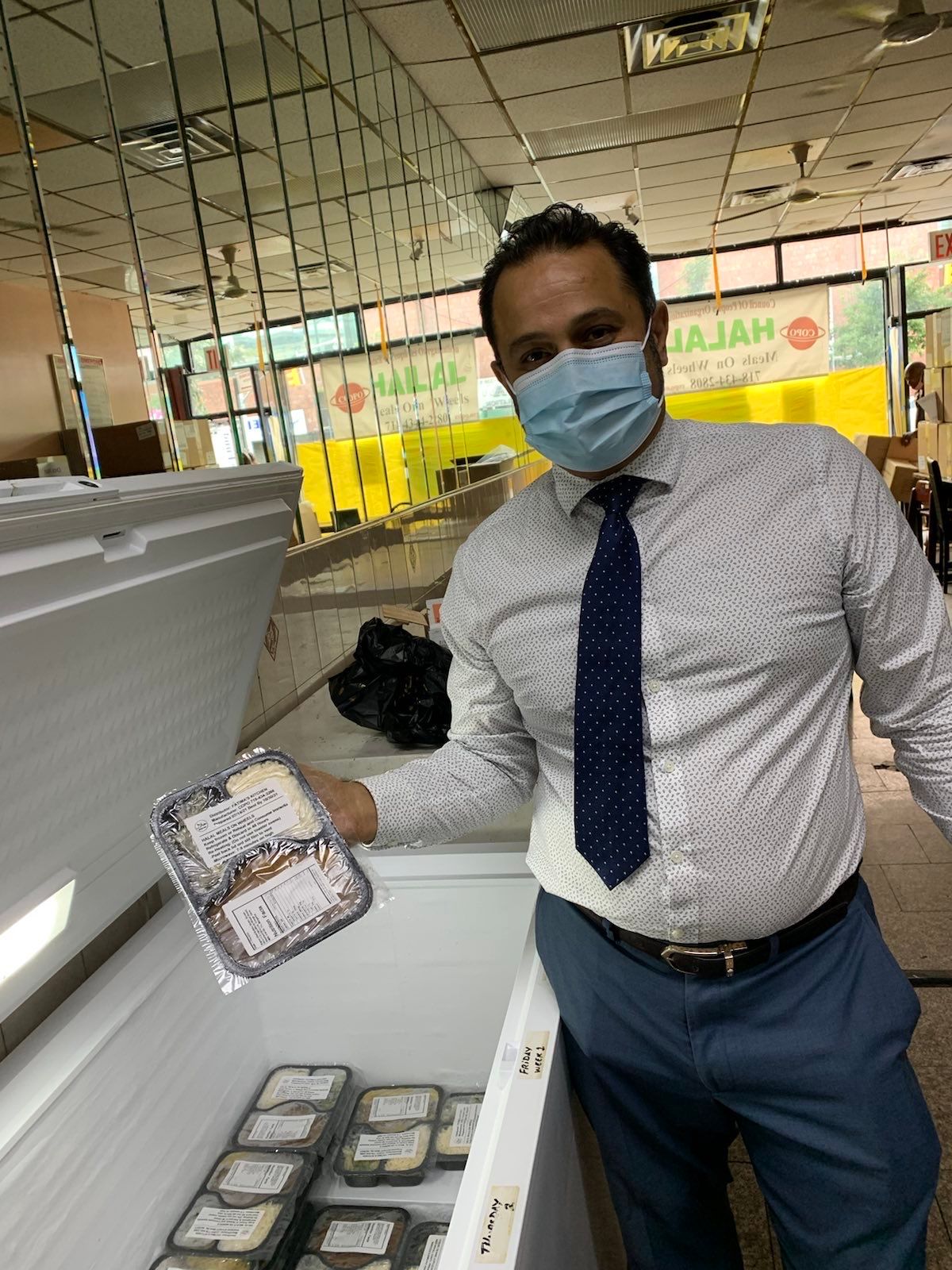
DURING THE FIRST WAVE of the pandemic, in the spring of 2020, a white 55-foot-long refrigerated truck stayed in front of COPO’s offices on Coney Island Avenue. It held the grimmest task for Razvi yet. The immense number of people claimed by the coronavirus overwhelmed the city’s hospital and funeral services, prompting an awful need for auxiliary morgues. It seems likely to be an aspect of the pandemic that New Yorkers will remember as indelibly as they do 9/11.
Razvi speaks delicately and respectfully of the experience. “The community came together to raise resources for the COVID victims,” is how he puts it.
After walking through COPO’s massive stores of donated food, and the kitchen where it prepares Halal meals-on-wheels, we step out into the August heat. Next door is Punjab Grocery. A man outside, seeing Razvi, walks over to ask him something. The only word I understand is “immigration.”
The neighborhood has changed over the years. As thousands of Pakistanis fled, Russians moved in, and later Uzbeks. Festive green banners reading WELCOME TO LITTLE PAKISTAN now hang from lampposts over Coney Island Avenue – “like in Little Italy,” Razvi said proudly – and a silent acknowledgment of hardship hangs there as well.
Can the community get back what it lost after 9/11? “No, never,” Razvi answered. “That’s not going to happen.”

